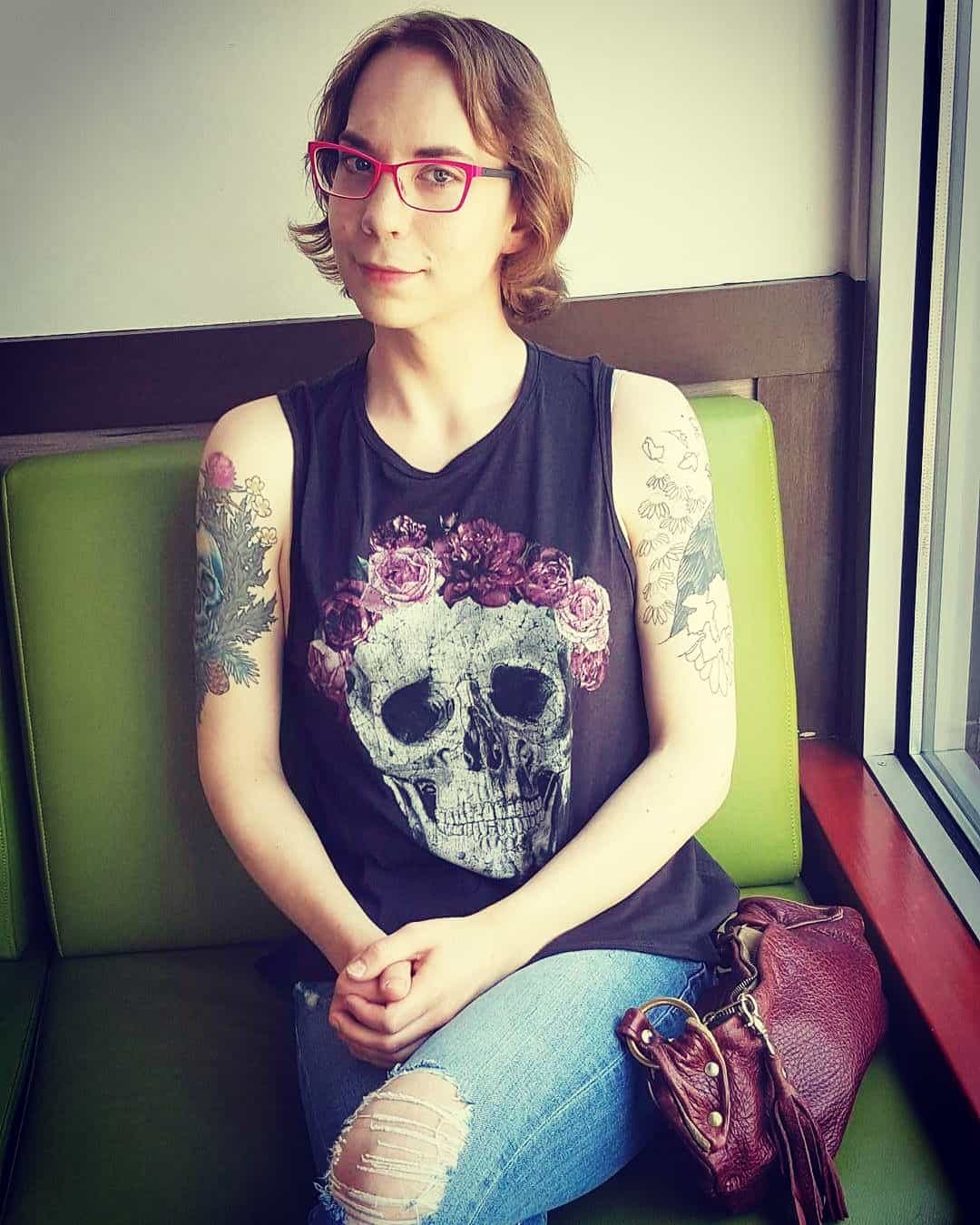Every year, the International Festival of Authors grows in size and scope, featuring both established novelists, poets, playwrights, short story writers and biographers, as well as emerging writers to note. We chatted with a handful of IFOA writers whose work we think you’ll love.
Gwen Benaway is of Anishinaabe and Métis descent. She has published two collections of poetry, Ceremonies for the Dead and Passage, and her third collection, What I Want is Not What I Hope For, is forthcoming in 2018. A two-spirited trans poet, she has been described as the spiritual love child of Tomson Highway and Anne Sexton. In 2015, she was the recipient of the inaugural Speaker’s Award for a Young Author and in 2016 she received a Dayne Ogilvie Honour of Distinction for Emerging Queer Authors from the Writers’ Trust of Canada.
SDTC: Walk us through a typical day in your life.
GB: I live in the Village, so I like to wake up early, wander over to the local Starbucks, and then walk to work. For me, maintaining a regular connection to the landscape I live in is important. Walking is my preferred way of connecting to Toronto and its neighbourhoods.
I work 9-5 so I spend my day alternating between my regular work, writing, and dealing with the business of writing. After work, I tend to be eating with my trans girlfriends or attending community/literary events. My life is very simple. I prefer rhythm and repetition in my life, likely some deep-seated poetic drive. Or I’m boring.
When did you realize you wanted to be a writer?
I always wanted to be a poet. Reading and literature was very much embedded in my life from a young age. Trashy fantasy novels were my first true love and I haven’t left them yet. I was the first person in my family to attend university, which I excelled at, but I ended up breaking from my MA program to work full time. Access to resources for education is something most Indigenous people struggle with. I decided to work rather than continue my education – something I regret but am also grateful for. I work in a community-based field but focus much of my energy on advocating and writing.
I published my first poetry book at twenty-three; I was one of the youngest poets in Canada at the time. I released my second when I was twenty-eight and my third book is coming out next fall. I’ve written a fourth, so I’m not sure where my career will take me, but I enjoy the work of poetry. I use poetry to push social boundaries, to explore new landscapes, and to humanize the experience of being an Indigenous trans woman. I am considered a confessional poet, a poet who writes from the intimate and everyday aspects of life. I often write about hard topics as well as my relationships. I see poetry and my work as a way to create space for Indigenous women, trans women, and everyone who lives on the messy margins of the normal.
Best advice to other young women wanting to get their work published?
I tell people to focus on their craft. Read people in your field who are writing in your genre. If you don’t read, you can’t write. Start with literary magazines and work your way out. Look for anthologies and other venues for emerging writers.
Don’t assume publishing will change your life. Publishing is a small part of being a writer, and you don’t need to be published in order to write well. The real work of a writer is on the page; build a connection to the page first and everything else comes from that bond. If you write because you want to published, you will quickly get burned out. Only the work can sustain you.
What literary trends are you loving? Which ones are you loathing?
I’m into the work of other Indigenous writers, like Alicia Elliot, Joshua Whitehead, Billy Ray Belcourt, Samantha Mock, Arielle Twist and Lindsay Nixon. Other trans girl writers, such as Casey Plett, Kai Cheng Thom, Jia Qing Wilson-Yang and many others, are the woman I look to in the literary world for hope. Emerging Black writers – Whitney French, Canisia Lubrin, and Cason Sharpe – are also exciting me. I really appreciate the development of more diverse, empowered voices from communities that haven’t traditionally had access to literary markets.
I continue to loathe the lack of diversity in Canadian literature. I’m frustrated by the ongoing anti-Indigenous and anti-Black sentiments that are part of the Canadian literary politics. I despise writing that doesn’t examine or question systems of power and privilege. Poetry that is inaccessible to most readers, poetry that performs “smartness” or poetry that is disconnected from the real world is bad poetry. If your poetry is not bent towards liberation, I don’t want to read it.
What should we be paying more attention to?
We should be paying more attention to the writers I’ve mentioned so far. We should be paying more attention to the ongoing legacy of racism in Canada. We should be paying more attention to potential of poetry to elevate conversations, bring us into joy, and transform our perspectives on the world.
What is your next project?
I’m currently editing my fourth book, Aperture Horizon, which sounds like a terrible book of poetry. It’s a single long-form poem about image, love and the complexity of intimacy between two people of different genders, races and bodies.
IFOA takes place at Harbourfront Centre (235 Queen’s Quay W) from October 19 to 29.



 Follow Us On Instagram
Follow Us On Instagram
